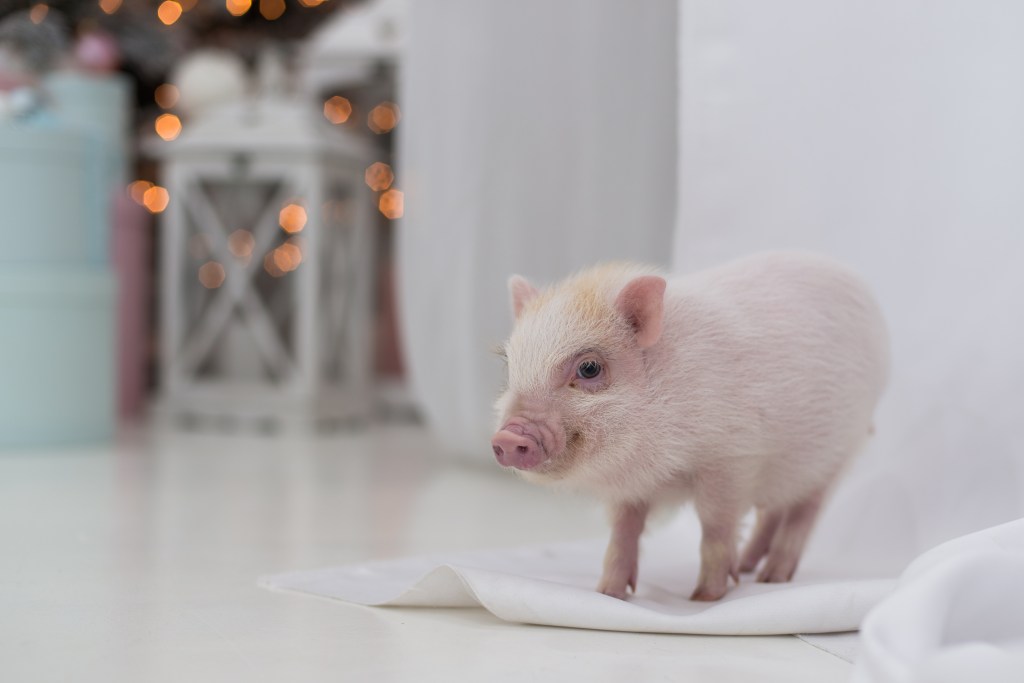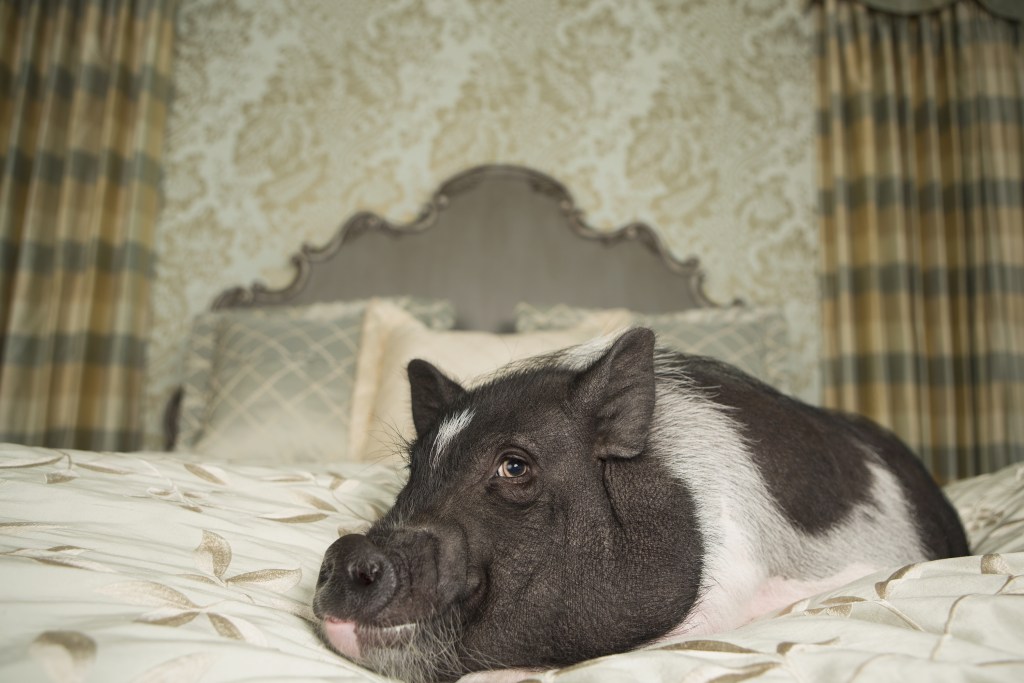Not interested in barking or meowing? You could give squealing a try. While people have kept pigs as farm animals for thousands of years, their popularity as a housepet has taken off recently, aided by some especially cute piggies with huge followings. As both owners and animals alike will tell you (okay, not literally in the case of the swine), these guys certainly aren’t a good fit for everyone and require very specialized care and a lot of space. But don’t discount them right away, especially if you are allergic to dogs but want a large beastie running around the place. Here’s what you need to know about pig adoption before bringing Babe home.

Where will my pig live?
Ideally, you would get a very young animal and raise it up to instill good behavior. With the proper training (and heaps of patience), you can teach your hog to go potty outside, use a dog-door, and even do tricks. But just because you’ll be snuggling up with your new little one doesn’t mean she can live inside all the time. Pigs need space and lots of it. You should only take one in if you have enough, both inside the home and out of it. Lastly, though you can own a pig in most places, some areas classify them as livestock and you’ll need a permit for that, not to mention proper fencing. Carefully research both state and city laws before you make the decision (and don’t even try your condo board).
What do pot-bellied pigs eat?
If you’re looking for someone to munch on the leftovers, give the pig a pass. Just because pigs will eat anything, doesn’t mean they should. Remember, as livestock, they aren’t being raised for comfort and longevity. You want more for your porker! Stick with commercial pellets mixed with a few low-sugar fresh fruits and veggies, like broccoli, green beans, and corn. And most importantly, keep her water dish fully stocked and plenty of places to cool off all around the house.
How can I take care of a pig?
As with all pets, your newest addition requires a bit of specialized care, starting with the vet. You want to find someone with experience and the proper setup to give the right vaccinations and teach you how to groom her properly. That means cleaning her little hoofs and preparing for her big yearly shed. On top of that, you need to make sure the new lady of the house is entertained. Many owners choose to go with a pair for this exact reason so they keep each other company. Some pigs also bond with the other pets of the household like a large family dog. Teach her to play games and hide treats in toys to figure out: you want her mind as engaged as her body. Lastly, your house will have to bring another crate into the fold for her so she has a space just for pigging out.

Do pigs make good pets?
We certainly think so, but only for the right owners. Think through these things critically to confirm you’re up to the challenge and ready to be a pig parent.
Pros
- They’re super smart and will learn quickly, even faster than many dogs
- Pigs live to be about 15 when cared for properly
- As highly social creatures, they’ll bond with the whole family and each other
Cons
- Your pig won’t reach her full size for up to six years and she could make it to 150 pounds
- When bored, they can turn destructive and wreak a lot more havoc than your average cat or dog
- Their grooming and vet care are so specialized, you may have trouble finding the right team
One last really important thing, don’t fall into the teacup pig trap. While they may start off very small, they almost never stay that way. You could come home with a tiny piglet that is supposedly full-grown and wind up with over 100 pounds of animal just a couple of years later. In cases where the little beasts are diminutive, it’s usually because of malnourishment and those sweeties don’t typically make it as it can be hard for them to recover. As always, find a reliable breeder and know exactly what you’re getting into first.



